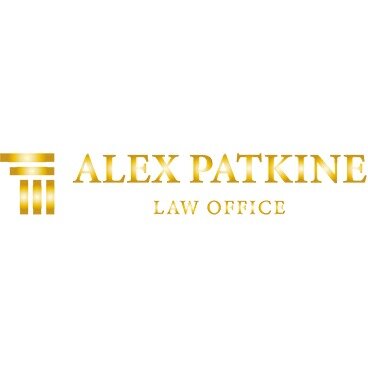Best Government Relations & Lobbying Lawyers in Haifa
Share your needs with us, get contacted by law firms.
Free. Takes 2 min.
List of the best lawyers in Haifa, Israel
About Government Relations & Lobbying Law in Haifa, Israel
Government Relations & Lobbying in Haifa, Israel, involves advocating on behalf of individuals or organizations to influence governmental policy, regulation, and legislation. Due to its unique social and political landscape, Haifa offers a dynamic environment where local, national, and international interests intersect. Professionals in this field work to ensure that the voices of businesses, non-profits, and other entities are heard by decision-makers in the government. In Israel, lobbying is a legally recognized activity that is subject to stringent regulations to ensure transparency and ethical conduct.
Why You May Need a Lawyer
Individuals and organizations may require legal assistance in government relations and lobbying for several reasons. Here are some common situations:
- Ensuring compliance with Israeli lobbying laws and regulations, which demand transparency and adherence to ethical standards.
- Drafting and submitting policy proposals or advocacy documents to government officials.
- Representing your interests during meetings with government officials or regulatory bodies.
- Advising on the strategic approach for advocacy campaigns and lobbying efforts.
- Navigating the complexities of local, national, and international regulations that may affect your lobbying activities.
Local Laws Overview
The legal framework governing lobbying and government relations in Haifa, and more broadly in Israel, includes several key statutes and regulations:
- The Lobbying Law, which requires lobbyists to register and report their activities to maintain transparency.
- Regulations that dictate how lobbyists can interact with government officials, including restrictions on gifts and hospitality.
- Ethical codes that must be adhered to by lobbyists to prevent corruption and undue influence.
- Local government ordinances in Haifa that may impose additional rules for lobbying at the municipal level.
Frequently Asked Questions
1. What is lobbying?
Lobbying is the process of influencing decisions made by government officials, often through the advocacy of legislation or policies that benefit a particular organization or cause.
2. Is lobbying legal in Haifa, Israel?
Yes, lobbying is legal in Haifa, as well as throughout Israel, but it is subject to strict regulations to ensure transparency and ethical behavior. Lobbyists must register and report their activities regularly.
3. Who can be a lobbyist?
In Israel, a lobbyist is typically a professional who represents an individual, company, or organization’s interests by advocating before government officials. However, there are specific qualifications and registration requirements that must be met.
4. What are the penalties for not complying with lobbying laws in Israel?
Penalties for non-compliance can include fines, revocation of lobbying registration, and potentially criminal charges depending on the severity of the violation.
5. Do I need to register as a lobbyist?
If you engage in activities that fall under the legal definition of lobbying as outlined by Israeli law, you are required to register.
6. What information must lobbyists disclose?
Lobbyists must disclose their clients, the specific topics they are advocating for, and any interactions with government officials, among other details.
7. How can a lawyer assist with government relations?
Lawyers can provide guidance on the legal framework, help in drafting documents and proposals, represent you in discussions with officials, and ensure compliance with all relevant laws and ethical standards.
8. Can lobbying activities occur at the municipal level in Haifa?
Yes, lobbying can be directed at municipal governments such as Haifa's, with additional local ordinances and rules affecting how these activities are conducted.
9. Are there exemptions from lobbying laws for certain activities?
Certain activities, such as providing general information or lobbying on behalf of recognized non-profit causes, may have exemptions; however, these are clearly outlined in the regulations and require careful attention.
10. How are lobbying activities monitored?
Lobbying activities are monitored by a combination of self-reporting by lobbyists, government oversight bodies, and regulations requiring the detailed disclosure of lobbying efforts.
Additional Resources
For further assistance and more detailed information, the following resources may be beneficial:
- The Israeli Ministry of Justice, which manages the registration and regulation of lobbyists.
- The Government Relations and Public Affairs Institute of Israel, offering training and resources for those in the lobbying industry.
- Legal publications and journals specializing in public policy and government affairs in Israel.
- The Haifa Municipality website for updates on local government operations and regulations pertinent to lobbying.
Next Steps
If you require legal assistance in Government Relations & Lobbying in Haifa, consider taking the following steps:
- Research and contact local law firms specializing in government relations and lobbying law. It's crucial to choose a firm with a solid understanding of both national and municipal regulations.
- Prepare all relevant documentation of your lobbying activities, including past and ongoing projects, to provide comprehensive information to your lawyer.
- Schedule a consultation to discuss your specific needs, compliance strategies, and any potential legal challenges you might face.
- Stay informed about changes in relevant legislation by subscribing to updates from reputable legal resources or government websites.
Lawzana helps you find the best lawyers and law firms in Haifa through a curated and pre-screened list of qualified legal professionals. Our platform offers rankings and detailed profiles of attorneys and law firms, allowing you to compare based on practice areas, including Government Relations & Lobbying, experience, and client feedback.
Each profile includes a description of the firm's areas of practice, client reviews, team members and partners, year of establishment, spoken languages, office locations, contact information, social media presence, and any published articles or resources. Most firms on our platform speak English and are experienced in both local and international legal matters.
Get a quote from top-rated law firms in Haifa, Israel — quickly, securely, and without unnecessary hassle.
Disclaimer:
The information provided on this page is for general informational purposes only and does not constitute legal advice. While we strive to ensure the accuracy and relevance of the content, legal information may change over time, and interpretations of the law can vary. You should always consult with a qualified legal professional for advice specific to your situation.
We disclaim all liability for actions taken or not taken based on the content of this page. If you believe any information is incorrect or outdated, please contact us, and we will review and update it where appropriate.















